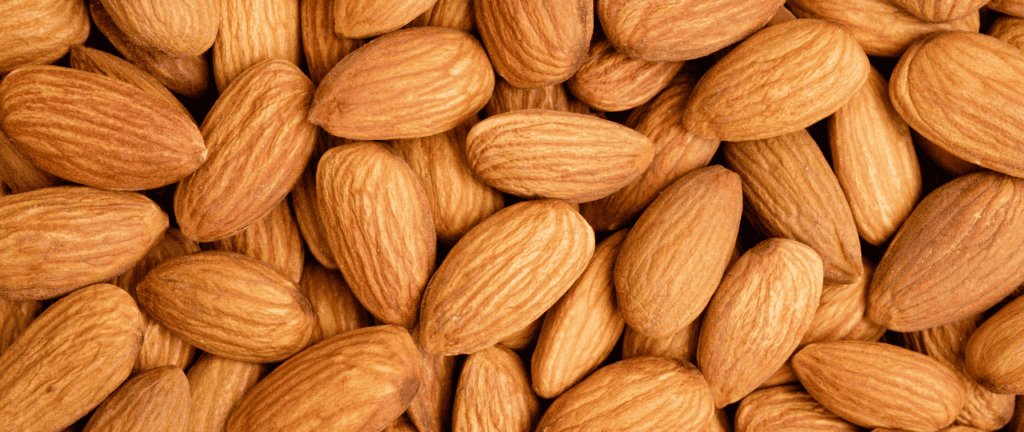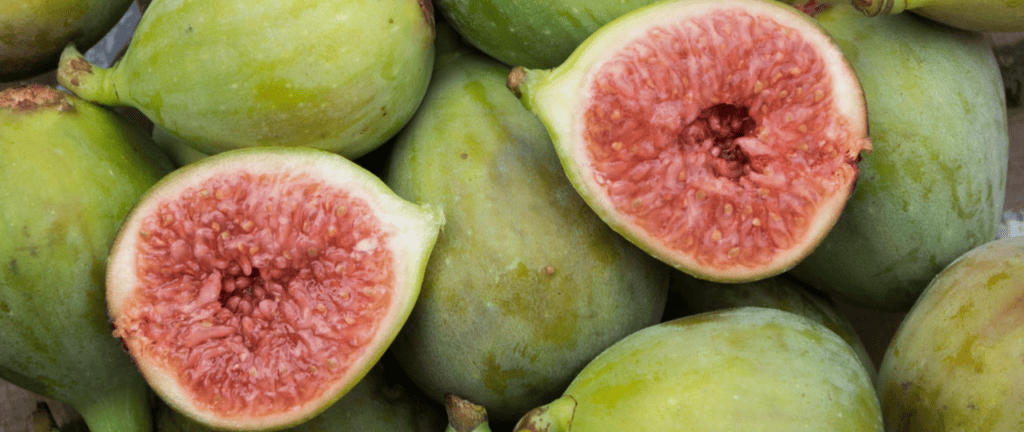Food in the Bible holds tremendous significance, offering more than just nourishment. It opens a window into the vibrant cultural tapestry of ancient times. As we embark on this captivating journey together, we will peel back the layers of history, revealing a vivid world of flavors, traditions, and symbols that still resonate today.
Join me on this adventure as we uncover the secrets of biblical cuisine and delve into its profound cultural context. With our curious minds, we will discover the hidden stories behind each ingredient, unearthing the wisdom embedded within these ancient culinary traditions.
So, grab your virtual apron and join me as we embark on an extraordinary exploration of the tantalizing world of biblical food. Together, we will unlock the flavors of the past, gaining a deeper appreciation for the role food played in the lives of our ancient ancestors. Get ready to savor the stories, traditions, and nourishment that await us on this remarkable journey through the foods of the Bible.
What People Ate in the Bible
In biblical times, people enjoyed a wide variety of foods for nourishment. Let’s explore their diets and the importance of a balanced, diverse selection of food groups.
During biblical times, people ate fruits, vegetables, grains, legumes, fish, meat, and dairy. This ensured they received a mix of essential nutrients for a healthy body.
A balanced diet was crucial for their well-being. It involved including foods from all food groups in proper portions, providing carbohydrates, proteins, fats, vitamins, and minerals.
By embracing a balanced diet with different food groups, they recognized the importance of nourishing their bodies with a variety of nutrients.
Let’s learn from their wisdom and strive to include diverse food groups in our meals. By doing so, we can nourish our bodies and enjoy the benefits of a well-rounded diet.

Clean and Unclean Foods
In biblical dietary laws, certain foods were classified as clean or unclean. Clean foods were permissible, while unclean foods were considered forbidden or impure. These classifications held religious and symbolic meanings, guiding the dietary practices of the people.
Clean foods included cattle, sheep, goats, fruits, vegetables, grains, and certain fish with fins and scales. Unclean foods encompassed pigs, rabbits, shellfish, birds of prey, certain insects, reptiles, and rodents.
These distinctions emphasized purity and separation, reinforcing the importance of living a holy life according to God’s commandments.
While the observance of these dietary laws varies today, understanding their historical and cultural significance enriches our knowledge of food choices. Let us respect this context while making informed decisions about the foods we consume.

Food in the Bible List
Let’s explore a list of foods specifically mentioned in biblical scriptures and uncover their cultural and symbolic significance. For each food, we will provide a description, discuss their health benefits, offer recommendations, and share the corresponding Bible verse where they are found.
Almonds

A nutritious nut with a crunchy texture and a mildly sweet flavor. They are rich in healthy fats, fiber, vitamin E, and magnesium, supporting heart health and aiding in digestion. You should enjoy almonds as a snack or incorporate them into recipes for added texture and nutrition.
And their father Israel said unto them, If it must be so now, do this; take of the best fruits in the land in your vessels, and carry down the man a present, a little balm, and a little honey, spices, and myrrh, nuts, and almonds. Genesis 43:11
Figs

Are soft, sweet fruits with a unique texture and taste. They are a good source of dietary fiber, potassium, and antioxidants, promoting digestive health and potentially aiding in managing blood pressure. Enjoy fresh figs as a healthy snack or incorporate them into both sweet and savory dishes.
"But they shall sit every man under his vine and under his fig tree; and none shall make them afraid: for the mouth of the LORD of hosts hath spoken it." Micah 4:4
Grapes

Small, juicy fruits that come in various colors and are often used to make wine. Grapes are packed with antioxidants, vitamins C and K, and resveratrol, offering potential heart health benefits and aiding in immune function. Enjoy grapes as a snack, use them in salads, or savor them in the form of juice or wine in moderation.
"And they came unto the brook of Eshcol, and cut down from thence a branch with one cluster of grapes, and they bare it between two upon a staff; and they brought of the pomegranates, and of the figs." Numbers 13:23
Salt

A mineral substance used to enhance flavor in various dishes. In moderation, salt is essential for maintaining fluid balance and nerve function in the body. t is important to consume salt in moderation as excessive intake can lead to health issues.
"Salt is good: but if the salt have lost his saltness, wherewith will ye season it? Have salt in yourselves, and have peace one with another." Mark 9:50
Olives

Small fruits with a characteristic taste and are often used to produce olive oil. Olives and olive oil are rich in healthy monounsaturated fats, antioxidants, and vitamin E, promoting heart health and potentially reducing inflammation. Enjoy olives as a snack, incorporate them into dishes, or use olive oil as a healthy cooking and dressing option.
"The trees went forth on a time to anoint a king over them; and they said unto the olive tree, Reign thou over us." Judges 9:8
Raisins

Dried grapes, offering a sweet and chewy flavor. They are a concentrated source of energy, dietary fiber, antioxidants, and certain minerals, providing potential benefits for digestion and overall health. Enjoy raisins as a convenient and naturally sweet snack, or add them to cereals, baked goods, and salads.
"He shall separate himself from wine and strong drink, and shall drink no vinegar of wine, or vinegar of strong drink, neither shall he drink any liquor of grapes, nor eat moist grapes, or dried." Numbers 6:3
Bread

A staple food made from flour, water, and yeast or leavening agents, baked to produce a soft or crusty texture. Whole grain bread can be a good source of carbohydrates, dietary fiber, and certain nutrients, contributing to energy levels and digestive health. Choose whole grain bread varieties for added nutritional value and enjoy it as part of a balanced meal.
"Give us this day our daily bread." Matthew 6:11
Flour

A finely ground powder made from various grains, seeds, or nuts, used in baking and cooking. Flour can provide carbohydrates, fiber, and essential nutrients, contributing to energy production and digestive health. Select whole grain or alternative flours like almond or coconut flour for increased nutritional value in recipes.
"And unleavened bread, and cakes unleavened tempered with oil, and wafers unleavened anointed with oil: of wheaten flour shalt thou make them." Exodus 29:2
Wheat

A cereal grain widely cultivated and used to produce flour for bread and other baked goods. Whole wheat is a good source of dietary fiber, B vitamins, and minerals, supporting digestive health and potentially reducing the risk of chronic diseases. Incorporate whole wheat products, such as whole wheat bread or pasta, into your diet for added nutritional benefits.
"And thou shalt observe the feast of weeks, of the firstfruits of wheat harvest, and the feast of ingathering at the year's end." Exodus 34:22
Fish

Refers to various aquatic creatures consumed as food, including both freshwater and saltwater species. Fish is a rich source of high-quality protein, omega-3 fatty acids, vitamins, and minerals, supporting heart health and brain function. Include fish in your diet as a lean protein option, aiming for variety and selecting sustainable choices.
“And they gave him a piece of a broiled fish, and of an honeycomb. And he took it, and did eat before them.” Luke 24:42-43
Calf

Lean calf meat is a good source of protein, vitamins, and minerals, supporting muscle development and overall health. Enjoy lean cuts of calf meat as part of a balanced diet, considering cooking methods that minimize added fats.
"And bring hither the fatted calf, and kill it; and let us eat, and be merry." Luke 15:23
Goat

Domesticated animals whose meat and milk are consumed. Goat meat is a lean source of protein, low in saturated fat, and rich in essential nutrients, contributing to muscle development and overall health. Incorporate lean goat meat into your diet as a flavorful alternative to other meats, and consider trying goat milk or cheese for variety.
"Go now to the flock, and fetch me from thence two good kids of the goats; and I will make them savoury meat for thy father, such as he loveth." Genesis 27:9
Lamb

Refers to the meat of young sheep. Lamb is a rich source of protein, vitamins, and minerals, contributing to muscle development and supporting overall health. Enjoy lean cuts of lamb meat as part of a balanced diet, considering different cooking methods to enhance flavors without excessive added fats.
“Speak ye unto all the congregation of Israel, saying, In the tenth day of this month they shall take to them every man a lamb, according to the house of their fathers, a lamb for a house.” Exodus 12:3
Sheep

Domesticated animals, sheep are valued for their meat, milk, and wool. Sheep meat is a good source of protein, B vitamins, and minerals, supporting muscle development and overall health. Incorporate lean cuts of sheep meat into your diet as a nutrient-dense protein option, considering different cooking methods for variety.
"And he shall set the sheep on his right hand, but the goats on the left." Matthew 25:33
Butter

A dairy product made by churning cream, resulting in a solid, spreadable form with a rich flavor. Butter provides a source of fat-soluble vitamins, including vitamins A, D, E, and K, and adds flavor to dishes. Consume butter in moderation as part of a balanced diet, considering individual dietary needs and preferences.
"Surely the churning of milk bringeth forth butter, and the wringing of the nose bringeth forth blood: so the forcing of wrath bringeth forth strife." Proverbs 30:33
Cheese

A dairy product made by coagulating milk and separating the whey, cheese comes in a wide variety of textures and flavors. Cheese is a source of protein, calcium, and other essential nutrients, supporting bone health and contributing to a balanced diet. Include cheese as part of a varied diet, being mindful of portion sizes and considering lower-fat options if desired.
"And honey, and butter, and sheep, and cheese of kine, for David, and for the people that were with him, to eat: for they said, The people is hungry, and weary, and thirsty, in the wilderness." 2 Samuel 17:29
Milk

A nutrient-rich fluid produced by mammals, milk is often consumed as a beverage or used as an ingredient in various food preparations. Milk is a good source of calcium, protein, and vitamins, supporting bone health and providing essential nutrients for growth and development. Include milk as part of a balanced diet, considering individual dietary needs and preferences. Choose low-fat or non-dairy alternatives if preferred or necessary.
"Ho, every one that thirsteth, come ye to the waters, and he that hath no money; come ye, buy, and eat; yea, come, buy wine and milk without money and without price." Isaiah 55:1
Eggs

Laid by various animals, particularly hens, eggs are commonly consumed as a versatile food product. Eggs are a source of high-quality protein, vitamins, minerals, and healthy fats, supporting muscle development and overall health. Include eggs as part of a varied diet, considering individual dietary needs and preferences. Cook them in different ways to enjoy their versatility.
"Or if he shall ask an egg, will he offer him a scorpion?" Luke 11:12
Honey

A sweet, viscous substance, hone y is produced by bees from the nectar of flowers. Honey contains antioxidants and antimicrobial properties, potentially providing health benefits and serving as a natural sweetener. Use honey in moderation as a natural sweetener and flavor enhancer in various dishes and beverages.
“My son, eat thou honey, because it is good; and the honeycomb, which is sweet to thy taste.” Proverbs 24:13
Locust

Locusts are edible insects that were consumed as a food source in biblical times. Locusts are a rich source of protein, vitamins, and minerals, offering potential nutritional benefits. While not commonly consumed today, locusts have historically served as a sustainable protein source in certain regions.
“Even these of them ye may eat; the locust after his kind, and the bald locust after his kind, and the beetle after his kind, and the grasshopper after his kind.” Leviticus 11:22
By exploring these foods mentioned in biblical scriptures, we gain insights into their cultural, symbolic, and nutritional significance. While incorporating these foods into our diets is a personal choice, understanding their historical context enriches our appreciation for the diverse and meaningful aspects of food.
Health Benefits of Biblical Foods
Let’s uncover the remarkable health benefits of specific foods mentioned in the Bible, exploring their healing properties and nutritional value. By examining scientific research, we can gain insights into the potential health benefits these foods offer.
Olives and Olive Oil
Are rich in monounsaturated fats and antioxidants, which may contribute to heart health, reduce inflammation, and lower the risk of chronic diseases.
Nutritional Value: They provide essential fatty acids, vitamin E, and phenolic compounds, offering potential antioxidant and anti-inflammatory effects.
Wine (Fermented Grapes)
Moderate consumption of wine, made from fermented grapes, has been associated with potential cardiovascular benefits, due to its antioxidant content and ability to improve blood flow and reduce clotting. Wine contains polyphenols, particularly resveratrol, which has been studied for its potential anti-aging and anti-inflammatory properties.
Flax
Flaxseeds are a rich source of omega-3 fatty acids, lignans, and fiber, which may contribute to heart health, reduce cholesterol levels, support digestive health, and potentially have anticancer properties. They provide essential fatty acids, antioxidants, and dietary fiber, making them a valuable addition to a healthy diet.
Sprouted Grain Bread
Sprouted grain bread is made from germinated grains, which enhance nutrient availability and digestion. It can be easier to digest, potentially reducing bloating and improving nutrient absorption. Sprouted grains offer increased levels of vitamins, minerals, and enzymes compared to traditional grains, providing a nutrient-dense option for bread lovers.
Raw Goat Milk
A nutritious alternative to cow’s milk, as it is easier to digest and has different protein and fat structures. It contains essential nutrients such as calcium, vitamin D, and proteins, contributing to bone health and growth. Goat milk is a source of vitamins, minerals, and high-quality proteins, offering potential benefits for those with lactose intolerance or cow’s milk allergies.
Lamb
A good source of high-quality protein, essential vitamins, and minerals, contributing to muscle development, maintaining bone health, and supporting overall well-being. It provides vitamins B12, zinc, iron, and selenium, which are essential for various bodily functions.
Bitter Herbs (Coriander and Parsley)
Bitter herbs like coriander and parsley possess potential digestive benefits, aiding in digestion, reducing bloating, and promoting liver health. They are rich in vitamins A, C, and K, as well as minerals like potassium, offering potential antioxidant and anti-inflammatory effects.
These are just a few examples of biblical foods that have been studied for their potential health benefits. By incorporating these foods into a balanced diet, we can benefit from their healing properties and nutritional value, promoting overall health and well-being. However, individual dietary needs and preferences should always be considered when making food choices.
Moderation and Limitation
In biblical teachings, certain foods are recommended to be consumed in moderation. Let’s explore these foods and discuss the potential risks associated with excessive consumption.
Salt
Salt is a common seasoning used to enhance flavor. However, excessive salt intake can lead to health problems, such as high blood pressure and increased risk of heart disease. It is important to use salt in moderation and be mindful of the overall sodium content in our diets. By reducing salt intake and opting for herbs and spices to flavor our meals, we can maintain a healthier balance.
Honey
A natural sweetener with various health benefits. Its high sugar content means it needs to be consumed in moderation. Excessive intake of honey, like any other sweetener, can contribute to weight gain, dental issues, and an increased risk of chronic diseases. Enjoying honey in moderation as part of a balanced diet is key to reaping its potential benefits without the associated risks.
Meat
While meat is a valuable source of protein and nutrients, biblical teachings encourage moderation in its consumption. Excessive meat consumption can contribute to health issues such as obesity, high cholesterol, and an increased risk of certain diseases. It is important to balance meat intake with plant-based foods and opt for lean cuts while being mindful of portion sizes.
Dairy (Milk, Butter, Cheese, Cream, Curd)
Are rich in nutrients like calcium and protein. However, excessive consumption of high-fat dairy products can contribute to weight gain, high cholesterol levels, and other health concerns. It is advisable to choose low-fat or reduced-fat options and consume dairy products in moderation as part of a well-balanced diet.
Oils
Oil is used in cooking and food preparation. While it provides essential fatty acids and flavor, excessive consumption can lead to weight gain and increased risk of heart disease. Using oils sparingly, opting for healthier oil choices like olive or avocado oil, and incorporating other cooking methods, such as baking or grilling, can help manage the intake of dietary fats.
By practicing moderation in the consumption of these foods, we can enjoy their benefits while minimizing potential risks. Incorporating a variety of foods, including fruits, vegetables, whole grains, and legumes, alongside these limited foods, promotes a balanced and nutritious diet. Let us strive to follow the biblical teachings on moderation and make mindful choices for our overall well-being.
Unusual and Supernatural Food in the Bible
The Bible contains fascinating accounts of unusual and supernatural ‘foods’ that carry symbolic meanings and hold cultural significance. Let’s delve into these intriguing instances, exploring their deeper symbolism and the cultural context in which they are mentioned.
Manna
Manna was a miraculous food provided by God to the Israelites during their journey in the wilderness. It appeared as a fine, flake-like substance on the ground each morning and served as their sustenance. Symbolically, manna represented God’s provision, faithfulness, and the dependence of the Israelites on Him for their daily nourishment.
Bread of Life
Jesus referred to himself as the “Bread of Life” in the New Testament. This metaphorical use of bread signifies the spiritual sustenance and eternal life that believers receive through faith in Him. It represents the nourishment of the soul and the fulfillment of spiritual hunger.
Living Water
Jesus also spoke of “living water” as a metaphor for the Holy Spirit and the spiritual refreshment that comes from a relationship with God. This symbolic use of water emphasizes the spiritual sustenance, purification, and renewal that believers experience through their connection with God.
Fruit of the Spirit
In the New Testament, the “fruit of the Spirit” is mentioned, referring to the qualities that believers exhibit when filled with the Holy Spirit. These qualities, such as love, joy, peace, patience, kindness, goodness, faithfulness, gentleness, and self-control, can be seen as spiritual ‘fruits’ that believers bear, representing their transformed character.
Wedding Feast
The concept of a grand wedding feast is mentioned in several biblical passages, symbolizing the joyous celebration of the union between Christ (the bridegroom) and the Church (the bride). This metaphorical feast represents the ultimate fulfillment and eternal joy that believers will experience in the presence of God.
These supernatural ‘foods’ mentioned in the Bible hold profound symbolic meanings within the cultural and spiritual context of the scriptures. They serve as reminders of God’s provision, spiritual nourishment, transformation, and the eternal joy that awaits believers. By understanding the symbolism behind these ‘foods,’ we can gain a deeper appreciation for the spiritual lessons and truths conveyed in the Bible.
Food in the Bible – Conclusion
Exploring the food in the Bible has allowed us to understand the foods consumed, the concept of clean and unclean foods, and the health benefits of these foods. By understanding the cultural and historical context of these foods, we gain deeper insights into their meaning.
People in biblical times enjoyed a variety of foods, maintaining a balanced diet for their well-being. The distinction between clean and unclean foods emphasized purity and separation, while specific biblical foods offered healing properties and nutritional value.
Supernatural or symbolic foods in the Bible, such as manna and the Bread of Life, conveyed spiritual nourishment and eternal significance.
Understanding the cultural and historical context of biblical foods is essential for appreciating their teachings. By embracing a balanced diet and incorporating biblical principles, we can cultivate healthier and more meaningful lives.

